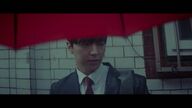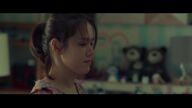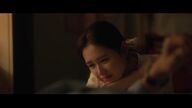After being interrupted for almost a month, I finally remembered that I haven't finished watching "Now to See You", so I quickly resumed it, and I was dazed for a moment (what is the pre-plot)? Fortunately, I also watched "Speaking by Raindrops" before. "Love You", watching the adaptation of "Now to See You" is equivalent to watching it a second time, and immediately remembered? "Borrowed" and "Now" are both movies that came out at the same time, or are they rated from high to high? Low Amoy out to see, are more than 8 points. Because of the different names, I didn't notice that "Xian" was an adaptation at first. I put "Xian" together with "Borrowing" just because I was curious about how "Xian" achieved almost the same reputation as the original movie "Borrowing". It's shoulder-to-shoulder~ (after all, the level of the adaptation version can be comparable to that of the shoulder-to-shoulder, at least it shows that it's not just taking the old money, it's really adapting and creating with intentions) After reading it, first of all I still sigh that the story setting of "Borrow" released in 2004 is indeed true. Subtle, fantasy time travel film and television themes should have just emerged in 2004, and then prevailed for a few years. With this trend, the remake of "Now" has the right time and place. In addition to this, there are people and people in "Now" - I feel the intention of the adaptation! "Borrow" is from Japan, "Now" is from South Korea, and the plot of "Now" has not been copied from the beginning, but replaced the Japanese cultural environment with its own environment, such as the one that leads to the male protagonist's illness. The plot changed from the summer festival to the school sports meeting. Some changes are also very pleasing, such as weakening the female colleague who has a crush on the male protagonist, combining the roles of a psychiatrist and a cake shop owner to become a good friend of the male protagonist, and adding corresponding comedy elements. In addition, the last part of "Now" directly points out the character psychology and the deep plot content implied in "Borrowing". After reading the diary, the heroine anxiously wanted to teach the child how to do housework. "Now" directly uses the words of the child in the class performance to express the meaning of this move - I will protect my father, this is my agreement with my mother (Mom here Too tearful?). Why did the heroine want to consciously return to the place where she passed through after the rainy season, "Now" also gave the answer directly - if you don't do this, you will never see the face of the little baby again. The heroine passed out in a coma due to a car accident. If she doesn't obey, will the future she cherishes change? The plot and screen performance of "Now" also renders the atmosphere of parting at the end more moving, allowing the audience to directly feel two different kinds of sadness. She was more worried about her father and son. She knew that she would wake up after she left, the days would be as written in her diary, and she would still see them. Farewell. The adaptation and adjustment of "Now" completely retains the original Delicately set and buried lines, at the same time dig up the original buried emotions a little, so that the audience can clearly feel the cover by brushing off the surface. No wonder it has a high rating??
View more about Be With You reviews











